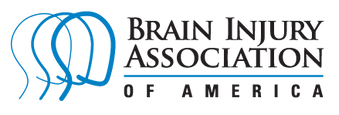Life after Stroke: Treatment and Recovery Strategies
Registration for BIAA’s Stroke Symposium which will take place virtually on November 22, 2024.
When: Friday, November 22, 2024, 12:00-4:00 p.m. ET
This virtual symposium on stroke provides a focus on three potential after-effects of stroke, associated treatment and rehabilitation approaches, along with strategies for family caregivers. Attendees will gain valuable insights into various aspects of stroke care, equipping them with knowledge and resources to support stroke survivors and their families.
Objectives
- Increase awareness and understanding of potential effects of stroke.
- Explore effective treatment approaches and rehabilitation strategies for stroke survivors.
- Provide tools and resources for family caregivers to support stroke survivors in their recovery journey.
CEU Credits
Professionals can earn up to 4 ACBIS CEUs.
Agenda
12:00–12:20 p.m. Introduction & Living Well After Stroke: A Survivor’s Journey
Leroy McClure, Jr. (CALT), Founder, FOCUS Learning Academy and CEO, Triple A Educational Services
12:20-1:00 p.m. Care and Treatment for Hemiparesis Caused by Stroke
Bradley Hill, DPT, NCS, Clinical Leader, Stroke Unit and Lindsey Holbrook, OTD, OTR/L, Sheltering Arms Institute
1:00-1:05 p.m. Break
1:05-1:55 p.m. Assessment and Treatment of Aphasia in Stroke Survivors
Amy Vogel-Eyny, PhD, CCC-SLP, Assistant Professor, Dept. of SLP and Audiology, Hunter College; Clinical Specialist, Rusk
Rehabilitation, NYU Langone
1:55-2:00 p.m. Break
2:00-2:55 p.m. Managing Spasticity: Current Treatments and Future Prospects
Cindy Ivanhoe, MD, Director, Spasticity and Associated Syndromes of Movement, TIRR Memorial Hermann
2:55-3:00 p.m. Break
3:00-3:55 p.m. Tools and Resources for Stroke Survivors & Family Caregivers
Greg Ayotte, CBIST, Director of Consumer Services, BIAA
3:55-4:00 p.m. Closing Remarks & Adjourn
Who Should Attend
· Stroke survivors
· Family caregivers
· Rehabilitation Clinicians
· Case Managers
· Psychologists
· Social Workers
· Nurses and Physicians
· Physical Therapists
· Occupational Therapists
· Recreational Therapists
· Speech/Language Pathologists
· Students
Brought to you in part by the generous support of


